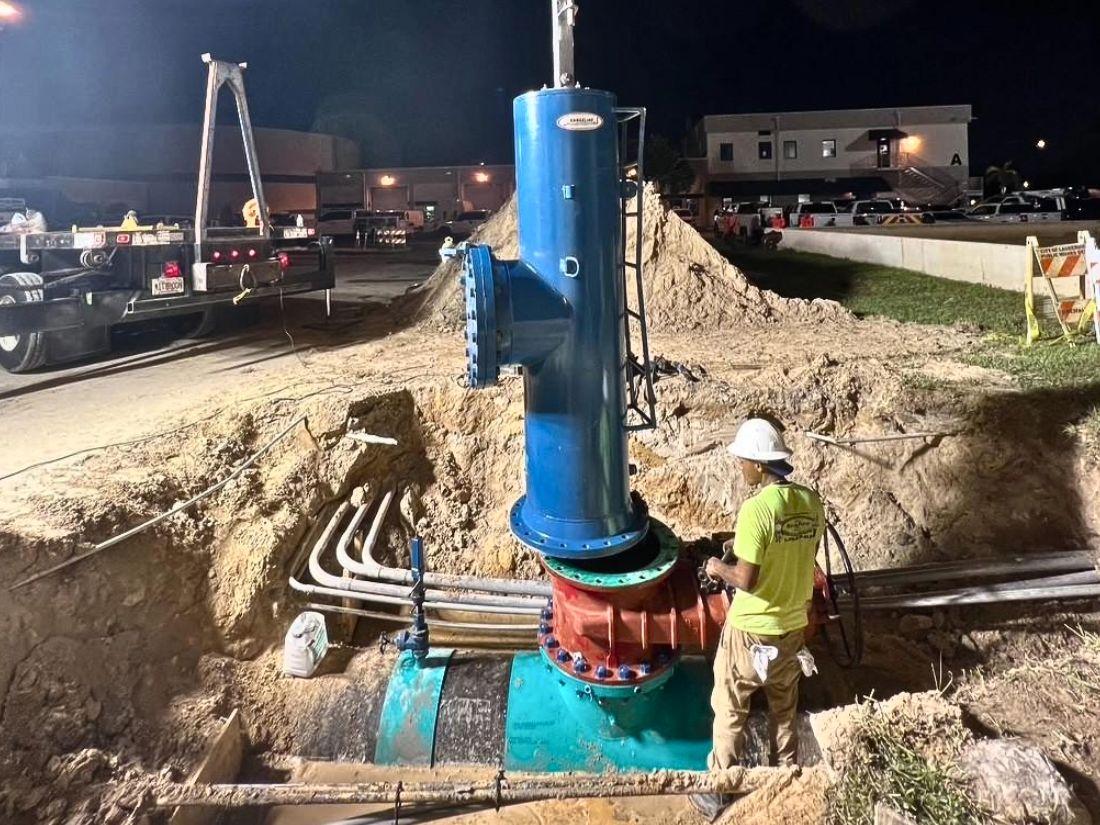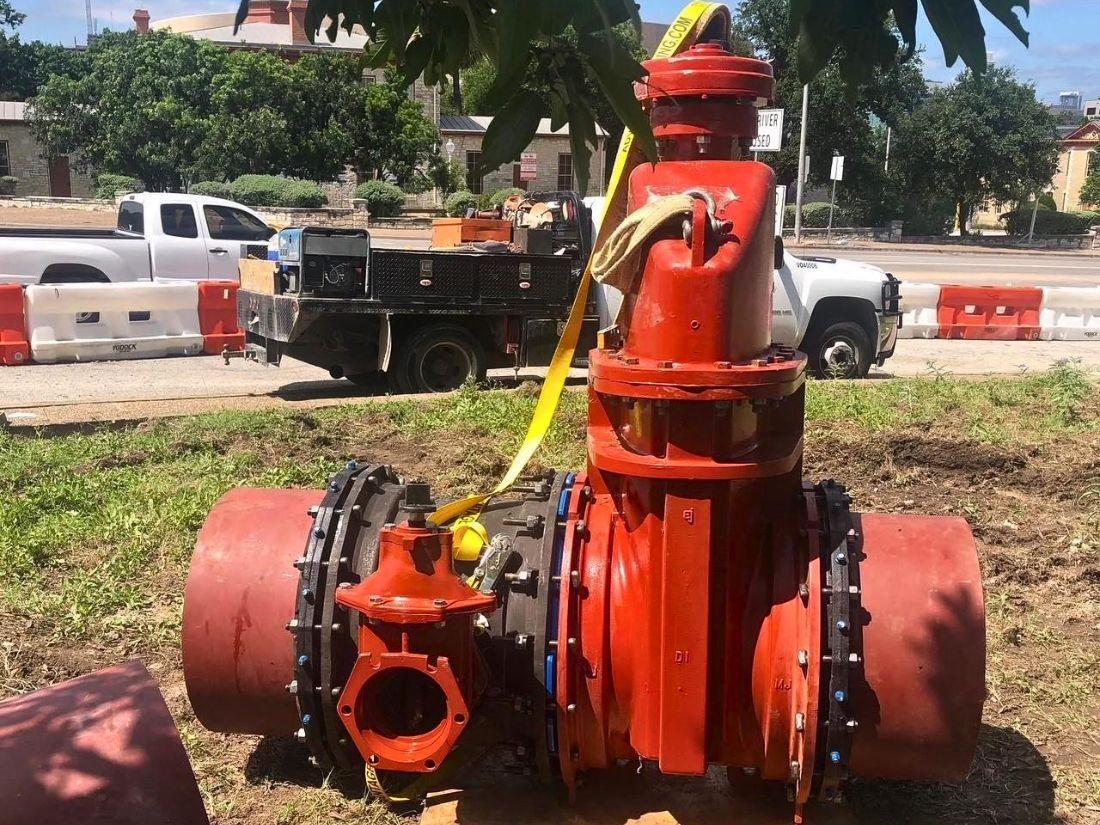Request Quote
If you want to ensure a successful pipeline project, you must select the right company to perform the service. When you have critical infrastructure such as pipes on the line, you need a partner who knows what they’re doing. If you’re unsure of what to look for, these eight essential tips will help you identify a pipeline service provider that meets your requirements and delivers exceptional results.
Licensing and insurance form the foundation of any reputable pipeline service company. Verify that your potential contractor holds all necessary licenses for your project type and geographic location. Different states and municipalities have varying requirements, and specialized pipeline work often requires additional certifications beyond general contracting licenses.
Insurance coverage should include general liability, professional liability, and workers’ compensation. Request certificates of insurance, and confirm coverage amounts are adequate for your project scope. Companies working on high-value infrastructure should carry substantial coverage limits. Additionally, ensure their insurance remains current throughout the project duration.
Outside of that, ask about bonding capabilities, particularly for larger projects. A bonded contractor provides additional financial protection and demonstrates their commitment to completing work according to specifications.
Experience in pipeline services encompasses more than the amount of time the company has been doing business. You’ll want to know the company’s track record with projects similar to yours in size, complexity, and industry sector. A contractor specializing in residential gas lines may not be the optimal choice for large-scale industrial pipeline systems.
Review the company’s portfolio of completed projects, paying attention to technical challenges they’ve successfully addressed. Companies with diverse experience across multiple pipeline types, including water, gas, oil, chemical, or industrial process lines, often bring valuable problem-solving capabilities to your project. However, ones with expertise specific to your sector might be even more valuable.
Be sure to also consider the tenure and qualifications of key personnel. Experienced project managers, certified welders, and skilled technicians are essential for quality pipeline work. Ask about ongoing education programs and professional development initiatives that keep their team current with industry best practices.

Safety is nonnegotiable in pipeline services. That’s why you must request a company’s safety statistics, including incident rates, near-miss reporting, and workers’ compensation claims history, before going with their services. Reputable companies maintain detailed safety records and are willing to share this information with prospective clients.
Examine their safety training programs and certifications. Look for companies whose personnel hold relevant certifications such as OSHA training, confined space entry, hazardous materials handling, and industry-specific safety protocols. Regular safety meetings, equipment inspections, and ongoing education demonstrate a commitment to maintaining high safety standards.
Inquire about their safety management systems and emergency response procedures as well. Companies with comprehensive safety programs often have lower insurance costs and fewer project delays, ultimately benefiting your project timeline and budget.
Knowing what a company’s service capabilities are in advance can streamline your project by reducing coordination challenges between multiple contractors. Be sure to evaluate whether the company offers the full spectrum of services you require, from initial site assessment and design consultation through installation, testing, and ongoing maintenance. Key services to consider include the following:
Companies offering integrated services often provide better project coordination, clearer accountability, and more efficient problem resolution. However, ensure they maintain high standards across all service areas rather than simply offering broad capabilities.
Many modern pipeline services rely heavily on advanced technology and specialized equipment. Evaluate the company’s investment in current tools and techniques, as these directly impact project efficiency, accuracy, and long-term reliability.
Look for companies that utilize modern inspection technologies, such as pipeline inspection gauges (PIGs), ultrasonic testing equipment, ground-penetrating radar, and pipeline mapping systems. Advanced welding equipment, including automated welding systems and specialized pipe handling and installation equipment, also indicates a commitment to quality and efficiency.
Ask about their equipment maintenance programs and backup capabilities, if possible. Well-maintained equipment reduces the risk of project delays, while backup equipment ensures continuity if primary tools require service.

Client references provide valuable insights into a company’s performance, reliability, and customer service. Request references from recent projects similar to yours in scope and complexity. Contact these references directly to discuss their experience, focusing on project quality, timeline adherence, communication effectiveness, and problem resolution.
Online reviews and industry ratings also offer perspective on a company’s performance. Check multiple sources, including industry associations, Better Business Bureau ratings, and specialized trade publications. Pay attention to how companies respond to negative reviews as well, as this indicates their commitment to customer satisfaction and continuous improvement.
If needed, consider reaching out to local industry contacts or professional networks for recommendations. Word-of-mouth referrals from trusted sources often provide the most reliable insights into contractor performance.
It is well-known that, for many businesses, transparent pricing and clear contract terms protect both parties and establish realistic expectations. That’s why you should request detailed proposals that break down costs by labor, materials, equipment, and additional services. This transparency allows for meaningful comparisons between contractors and helps identify potential cost overruns.
Avoid contractors who provide vague estimates or refuse to detail their pricing structure. While the lowest bid may seem attractive, extremely low prices often indicate corner-cutting that can compromise quality or safety.
Review contract terms carefully, focusing on payment schedules, change order procedures, warranty provisions, and dispute resolution mechanisms. Fair contract terms should protect your interests while allowing the contractor reasonable profit margins and flexibility for unforeseen circumstances.
Since pipeline projects must comply with numerous federal, state, and local regulations, ensure your chosen contractor maintains current knowledge of applicable codes and standards, including Department of Transportation (DOT) regulations, environmental protection requirements, and local building codes.
Ask about their permitting experience and ability to navigate regulatory approval processes. Experienced contractors can often expedite permitting and avoid compliance issues that could delay your project or result in costly modifications. You should also verify that their work procedures align with industry standards. Compliance with these standards ensures long-term reliability and may be required for insurance or regulatory approval.
Companies that prioritize regulatory compliance demonstrate professionalism and reduce the risk of project complications. They also typically maintain better relationships with regulatory agencies, which can benefit your project approval process.
Now that you know the key factors involved in finding a pipeline service company, it’s time to put that knowledge to use. Start by looking into our services here at Rangeline Group. We’re a professional pipeline services company that specializes in industrial and municipal work. Take the time to put our services to the test and see if they match your needs!